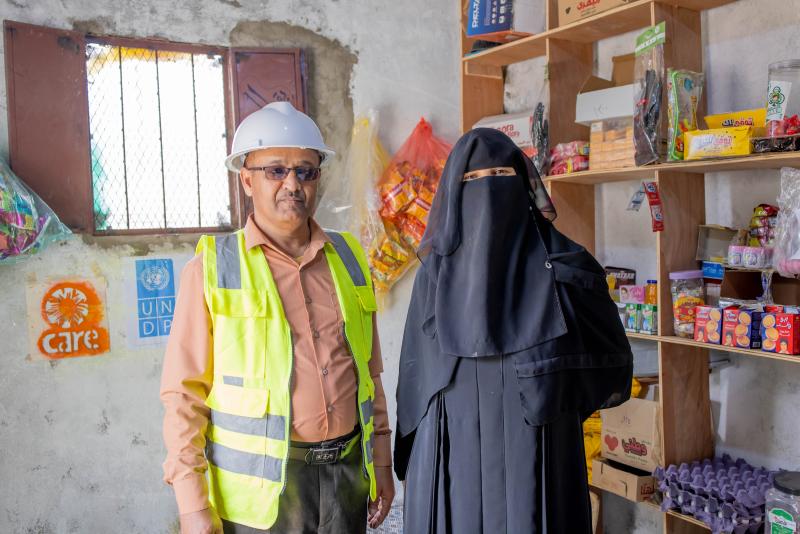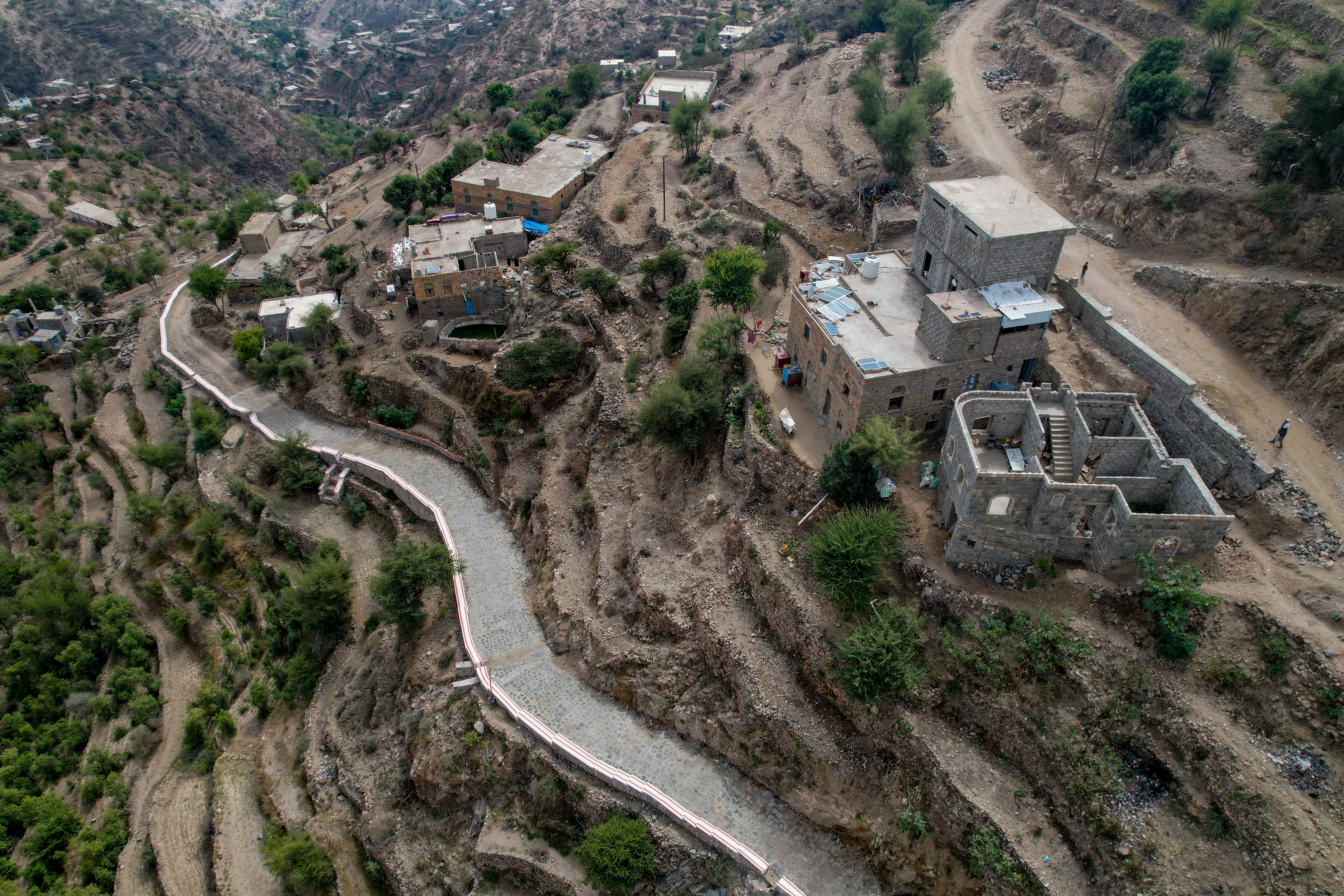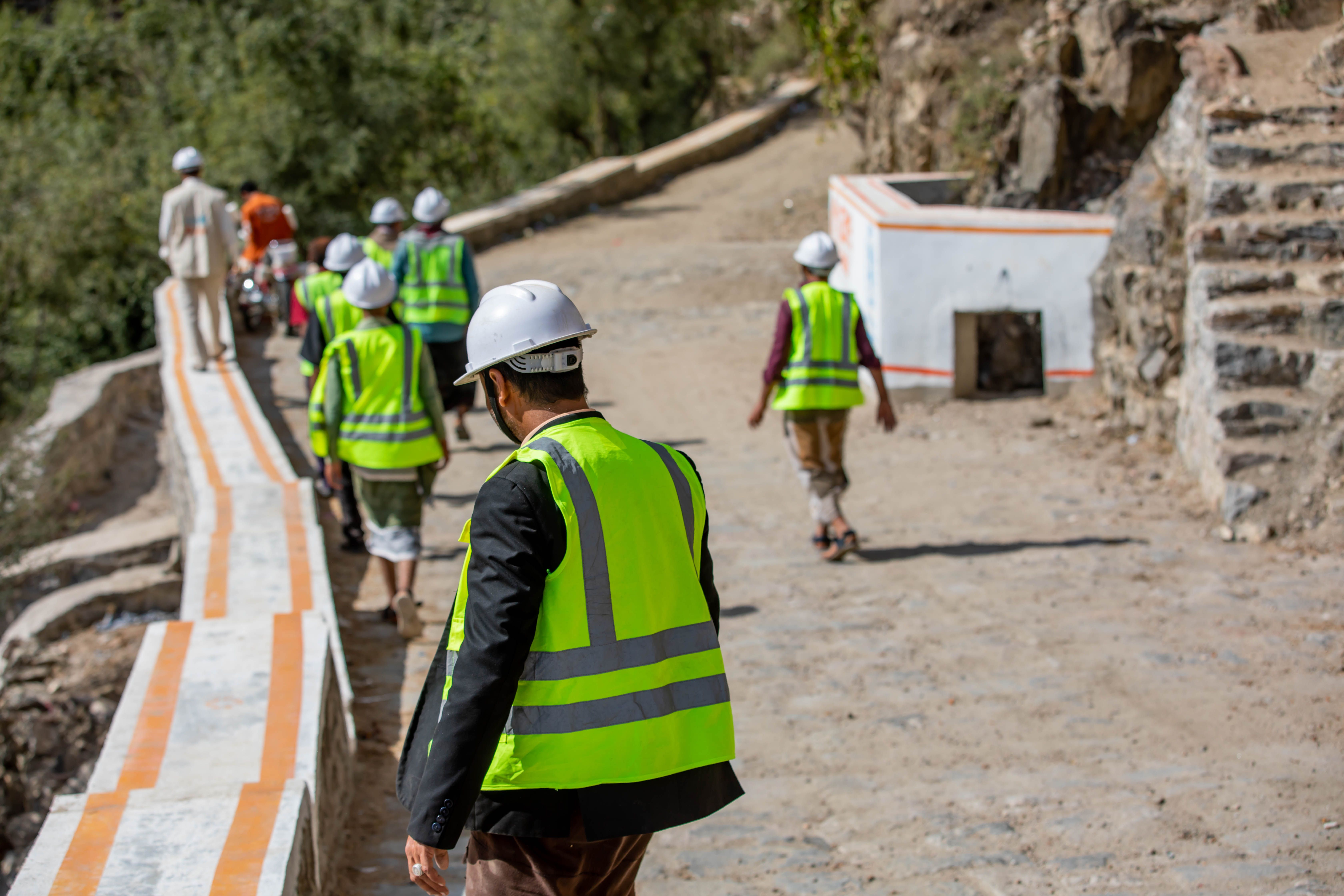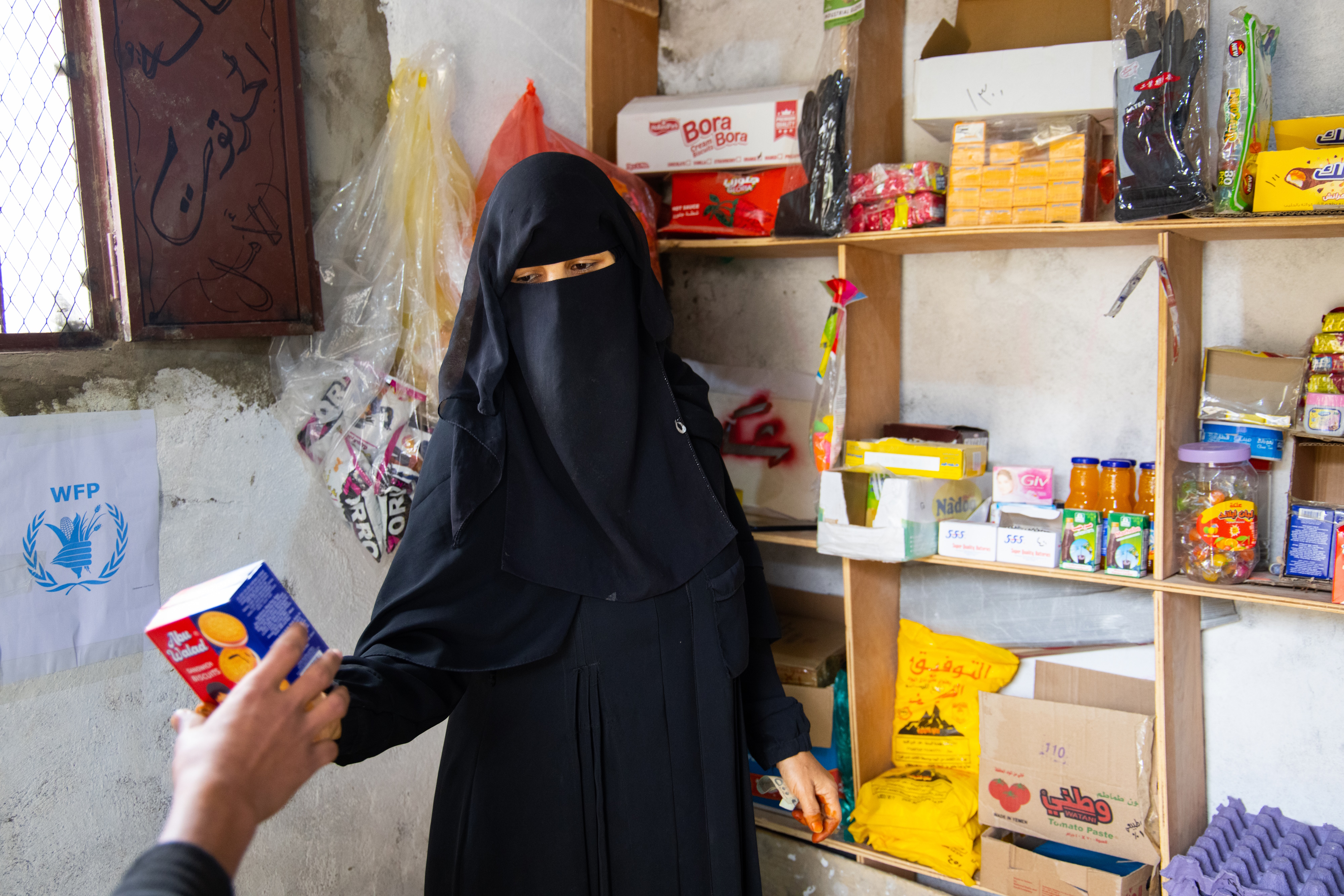

"Working on the road was not just about improving transportation; it was about giving our community a lifeline. It was a dream come true for our village." – Adel
Adel, his wife Wazirah, and their four children, live among the picturesque yet challenging landscapes of Al Musayjid Village in the Al Maqatirah District of Yemen’s Lahj Governorate. Despite the beauty of their surroundings, the couple faced severe hardships exacerbated by Yemen's ongoing multiple crises. As a long-time teacher, Adel grappled with the irregular payment of salaries, making it difficult to provide for his family. Meanwhile, Wazirah nurtured dreams of ensuring a stable future for their children, including better service provision, amid Yemen’s economic instability.
The ERRY III Joint Programme, funded by the European Union and the Government of Sweden, in collaboration with the World Food Programme (WFP) and implementing partner CARE, provided the opportunity for Adel and Wazireh to actively participate in their community's efforts to improve infrastructure and access to basic services. Additionally, the United Nations Development Programme (UNDP) and local partner the Social Fund for Development (SFD) trained local community committee members, including Adel and Wasirah, to establish resilience plans aimed at restoring essential services.

As part of the Food Assistance for Assets (FFA) programme, facilitated by WFP, Adel and Wazirah dedicated six months as part of a group of 150 participants to rehabilitate a crucial road in Al Musayjid Village. Their commitment transformed a once difficult and hazardous path into a reliable road connecting their village to neighboring areas and essential services. Three other nearby villages also benefit from the improved road, including more than 3,500 individuals who use the road for access services for health, schools and water.
"The road was not just a path; it was our hope and future," Adel shares. "Working on the road was not just about improving transportation; it was about giving our community a lifeline. It was a dream come true for our village."
Wazirah echoes his sentiments, saying, "This project brought our village together. Every day, we worked side by side with our neighbors, knowing that we were building something that would benefit us all."

During the six-month of the project, Adel and Wazirah, along with 150 other men and women, received monthly cash payments. This income provided crucial financial stability amidst local economic downturn.
"The money we earned from the road project allowed us to dream bigger," Wazirah explains. "We could finally open our Al-Amal Grocery, which has become a cornerstone of economic stability for our family."
Adel adds, "With the steady income, we could stock our store more efficiently and expand our business. It was a significant step towards securing a better future for our children."
Adel and Wazirah’s small grocery store provide a reliable income to support their family's needs, including their childrens’ education. Their four children, who had struggled with the uncertainty of their father’s irregular salary, are now able to continue their studies without interruption.
"Our children can now go to school without worrying about the costs," Wazirah shares with a smile. "This project has given them a chance at a brighter future."

To read the full article, please head over to its original publication undp.org/yemen